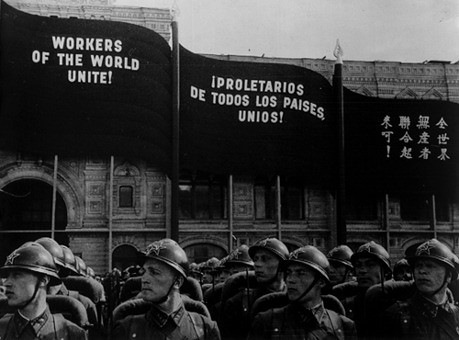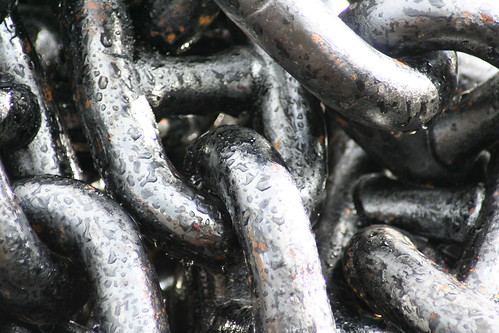Unmitigated, foolish, selfish, immature, impatient, ignorant ass. She, suffering untold, unspeakable mental and emotional anguish. Something she couldn't control; something she couldn't figure out; something it takes a bit of courage to make it through. Me, the "good son," not able to figure this out; believing that emotions are something that one controls, and believing that moms are made for their children.
Snap out of it, already!
That's what I told her. Because I didn't believe her feelings were tied to reality. Because I didn't believe the sickness was as real as a, y'know real sickness. Like cancer. Or a cold.
Some years later those words came back to haunt me like an avenging spectre when someone close to me said them to me during the depths of my depression. And I felt the horror, and the hurt, and the guilt and shame and helplessness.
I thought of this long after my initial shock and anger at the Onion for making a full-fledged "comedic" verbal sexual assault at a nine year old African American female actor (warning: TRIGGERS), when the next day I found that several white males were saying, You don't know how hard it is to do comedy. You should allow comedians to do comedy without being offended. Your offense isn't real. Your offense is coming from a place of privilege. Here, find something REAL to get offended about. Who we really should be concerned about are the writers (and, by extension all white males) who will not be free to make fun of little black girls anymore. And you, you should be ashamed of having feelings and feeling the way you do about the things you do. Patriarchy is dead; there is no sickness here. Be real. Snap out of it already.
 |
| Quvenzhané Wallis deserved this? |
Twitter was full of such asshattery.
From a media columnist for the New York Times:
Onion to writers: Tweet incredibly edgy, funny stuff. If you go over the line, we'll just slide you under the bus.
— david carr (@carr2n) February 25, 2013
To an activist for gay rights:
Quvenzhané Wallis was the youngest woman ever nominated for an Oscar. Hard to see her as very put-upon…
— Ryan J. Davis (@RyanNewYork) February 25, 2013
@gmgeiko I know plenty of black actors and am aware of the problem.
— Ryan J. Davis (@RyanNewYork) February 25, 2013
@geedee215 @gmgeiko oh golly, i just mean i've had many conversations on this issue. I directed many shows.
— Ryan J. Davis (@RyanNewYork) February 25, 2013
Or a senior writer for the Huffington Post:
@radleybalko cool, how bout racism and sexism then?
— Xeni Jardin (@xeni) February 25, 2013
@radleybalko @xeni "why not focus on places where -isms cause tangible harm?" You mean like public racist and sexist jokes?
— jasdye (@jasdye) February 25, 2013
I'm not including angry responses sent to me by a clearly frustrated 12 year old boy and/or Men's Rights Activist*. These are more-or-less progressive/liberal voices working for progressive/liberal media. Talking about the "oppression" caused by reacting in anger/frustration to horrible names. When those taunts are reflective of and public manifestations of sexist and racist (and ablist/homphobic/transphobic/ageist) put-downs and marginalizations all over. So, yes, defending the comments or attempting to silence those who speak out against such put-downs is an act of marginalization. It very much so continues the keeping-in-line and oppression of non-cis gendered / white / able-bodied / able-minded / middle-and-upper class and/or male persons.
Yesterday, while traveling with my own grade school-aged daughter, we were joking around. And I was trying to teach her how to do the thing where we make exaggerated motions and cop each other's voice. "I'm Jason and I..." And I tried to be mindful and not hurt her. And I think I may have succeeded, but maybe I pushed an emotional button - if not for her, then for me. Because then she told me a "secret." It was ludicrous and silly and preposterous. But her secret, even though it wasn't true and we both knew that we both knew it wasn't true, was still in the realm of secret. And, as such, she warned me not to blurt it out. Of course I wouldn't. But I egged her along so much that she thought that I actually did, out loud, for passersby to hear.
And she cried heartbroken tears. And I felt like a mighty jerk. As well I should. And I explained to her that I was sorry. That I didn't say her secret (you know how you expect something so shocking to come that you shut down your senses, so you may not even experience it, just the expectation? I think it was like that), and I didn't mean to hurt her. I didn't want her to cry. The reasons for her tears in this case may not have been what she thought they were, but her reasons for crying were. And her feelings sure were. They are real - they had a right to feel pushed and violated. I did push her, my precious one. I was being an ass for the sake of "comedy."
But my daughter shouldn't have to be subjected to degrading insults by infantile men getting their jollies by teasing girls.
Not just because she's my daughter. That's what makes it personal, for sure. As does the fact that joking bullies helped to make high school a repressed memory for me. But moreso because she's a human being. A girl, a child, a female. A human being and worthy of dignity and self-respect. And:
there comes a point where you're simply FATIGUED. fatigued that comedy has STILL not found a way to evolve from making you the punchline. +
— she was a showgirl (@mslooola) February 25, 2013
Grown men telling me that I shouldn't be insulted by such "jokes" are infantile assholes.
PS:
I'd also encourage you to read Grace from Are Women Human's response here.
-------------------------------------------
*Apparently, there's a lot of overlap.






















